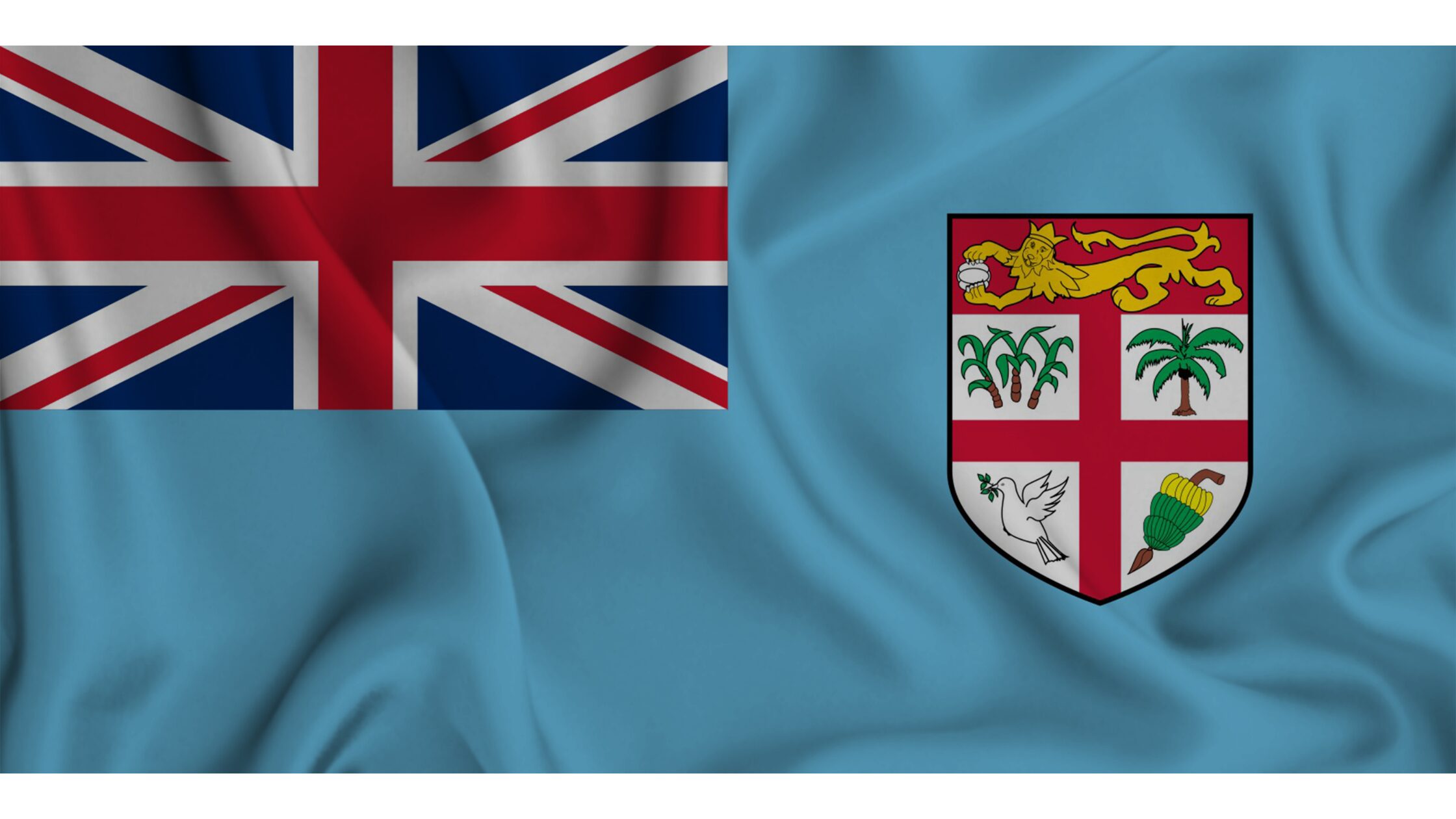Everyone speaks English in Fiji, but as a visitor, understanding the local languages and norms will make your experience and interactions with the warm-hearted Fijian people much better. Here’s a guide to help your communication.
Official Languages
Fiji has three official languages: Fijian, English, and Fiji Hindi. English is widely spoken and understood, making it convenient for tourists to communicate with locals, especially in urban areas and tourist hubs.
English
English is the lingua franca (the language everyone knows how to speak) of Fiji because of historical factors, particularly the colonial period. Fiji was colonized by the British Empire in the late 19th century.
The cession of Fiji to Britain occurred in 1874, and the islands remained a British colony until gaining independence in 1970. During the colonial period, English was introduced as the official language.
English was and still is used as the language of administration, law, and education. The British colonial authorities implemented English-language policies in institutions, reinforcing its role as the primary means of communication in official and formal settings.
Fijian (iTaukei)
The Fijian language, known as “Na Vosa Vakaviti” in Fijian, belongs to the Austronesian language family. Here’s a brief overview of its origin and linguistic affiliations:
- Austronesian Family: Fijian is a member of the Austronesian language family, which is one of the world’s largest language families. Austronesian languages are spoken by various communities across Southeast Asia, the Pacific Islands, and parts of Madagascar.
- Lapita Culture: The linguistic and cultural roots of Fijian are associated with the Lapita culture, an ancient Pacific culture that existed around 1600 BCE to 500 BCE. The Lapita people are believed to have been skilled navigators and seafarers who migrated across the Pacific, influencing the languages and cultures of the regions they settled.
- Polynesian-Hawaiian Connection: Fijian shares linguistic similarities with Polynesian and Hawaiian languages, suggesting historical connections and interactions among these Pacific island cultures. While Fijian is not classified as a Polynesian language, there are linguistic features that indicate shared ancestry or contact.
- Melanesian Influence: Despite its Austronesian roots, Fijian has also been influenced by the Melanesian languages spoken in neighboring regions. This influence is evident in some linguistic elements, reflecting historical interactions and cultural exchanges.
- Dialects: Fijian is not a single homogeneous language but consists of several dialects. The two main dialects are Eastern Fijian (spoken in the eastern part of the archipelago, including Suva) and Western Fijian (spoken in the western part, including Nadi). The differences between these dialects are primarily in pronunciation and vocabulary.
- Fijian Writing System: Fijian traditionally did not have a writing system, and it was primarily an oral language. The modern Fijian alphabet, introduced during colonial times, is based on the Latin script.
Fiji Hindi
In the late 19th century, the British colonial authorities in Fiji faced a labour shortage on sugarcane plantations. To address this, they introduced the indentured labor system, bringing thousands of Indian laborers to work on the plantations.
These laborers, mainly from the northern regions of India, brought with them their languages, cultures, and traditions.
So, Hindi became a Fijian language primarily through the migration of Indian laborers to Fiji under the indentured labor system. The linguistic diversity among these laborers, coupled with the conditions on the plantations, led to the development of Fiji Hindi as a distinct linguistic variety in the multicultural context of Fiji.
Fijian Pronunciation
In Fijian pronunciation, the sounds of “ds,” “gs,” and “cs” don’t occur naturally, and the language doesn’t have these specific consonant combinations.
In Fijian, the pronunciation of place names may differ from their phonetic spelling due to the unique phonetic rules of the Fijian language. Here are a few examples:
- Suva: Pronounced “Soo-va” instead of “Suh-vah.”
- Nadi: Pronounced “Nah-ndi” instead of “Nah-dee.”
- Sigatoka: Pronounced “Sing-ah-toh-kah” instead of “Sig-ah-toh-kah.”
- Rakiraki: Pronounced “Rah-kee-rah-kee” instead of “Rak-ee-rak-ee.”
- Levuka: Pronounced “Leh-voo-kah” instead of “Leh-vuh-kah.”
- Lautoka: Pronounced “Low-toh-kah” instead of “Lau-toh-kah.”
These differences highlight the importance of understanding the specific pronunciation nuances in Fijian to communicate effectively while in Fiji. Fijian phonetics are relatively straightforward, and the language is written in a way that reflects its phonological structure. Here’s a brief overview:
- “ds” Sound: Fijian doesn’t have a distinct “ds” sound. If a word contains these letters together, they would be pronounced as separate sounds. For example, in the Fijian word “vadse” (pronounced vad-se), the “d” and “s” are pronounced distinctly.
- “gs” Sound: Similar to “ds,” the combination “gs” doesn’t exist as a unique sound in Fijian. The two letters are pronounced separately. For instance, in the Fijian word “magsa” (pronounced mag-sa), the “g” and “s” are pronounced independently.
- “cs” Sound: Fijian also lacks the “cs” combination. When these letters appear together, they are pronounced individually. For instance, in the Fijian word “vaca” (pronounced va-ca), the “c” is pronounced as a separate sound from the following vowel.
It’s important to note that Fijian has a phonetic system that is quite different from English, so certain combinations of consonants may be pronounced differently than in English. Fijian pronunciation generally follows a straightforward pattern, making it accessible for learners.
Common Fijian Phrases
Learning a few basic Fijian phrases can go a long way in connecting with the locals and showing respect for their culture. Here are some essential phrases:
- Bula: Hello/welcome
- Vinaka: Thank you
- Moce: Goodbye
- Yadra: Good morning
- Sota tale: See you later
Greeting Customs
Fijians are known for their warm and friendly greetings. When entering a village, it is customary to ask for permission, saying “E dua na kerekere” (May I come in?). Remember to remove your hat and sunglasses as a sign of respect.
Understanding Fijian Names
Fijian names often reflect the person’s background or family. Prefixes like “Ratu” for men and “Adi” for women indicate chiefly status. Addressing someone with the appropriate title, like “Ratu” or “Adi,” shows cultural sensitivity.
Respect for Elders
In Fijian culture, respect for elders is highly valued. When speaking with older individuals, use formal terms like “Tina” for mother or “Baba” for father. It’s a gesture that is appreciated and reciprocated warmly.
Dress Modestly
When visiting villages or participating in cultural events, dressing modestly is essential. Both men and women should cover their shoulders and knees. Wearing a sulu (sarong) is a culturally appropriate choice.
Engaging in Kava Ceremonies
Kava, a traditional Fijian drink, plays a significant role in social gatherings. If invited to a kava ceremony, accept the bowl with both hands, drink in one sip, and clap once to show your appreciation.
Other Languages in Fiji
In addition to these primary languages, there is linguistic diversity among the population due to Fiji’s multicultural nature. People also speak their ancestral languages like Punjabi, Gujarati, Chinese, Rotuman, and Tongan.
It’s important to note that Fijian and English play significant roles in official and public domains, while Fiji Hindi is commonly used within the Indo-Fijian community and in informal settings.
Enrich your travel experience
Grasping the linguistic and cultural nuances of Fiji will not only enrich your travel experience but also foster meaningful connections with the locals. Whether you’re strolling through bustling markets or relaxing on pristine beaches, a few words and gestures will make your journey through Fiji even more memorable. Bula vinaka! (Good wishes!)





